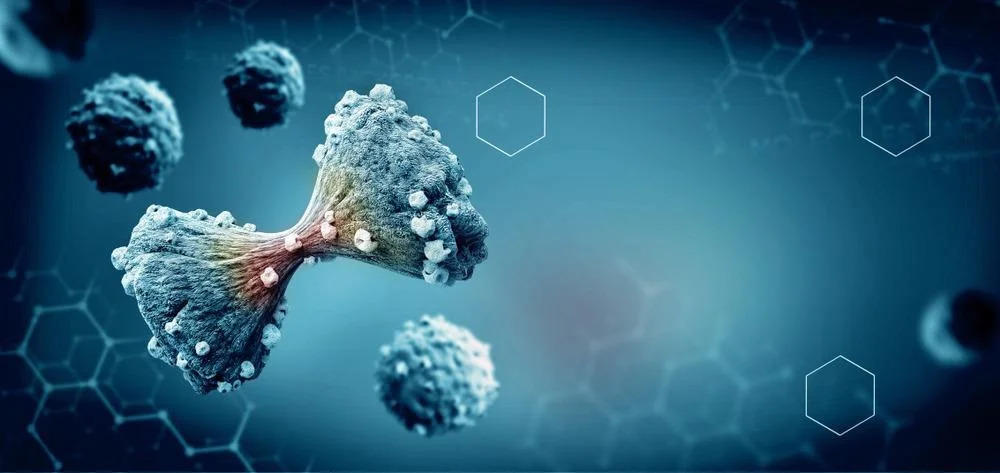Cancer has been considered the major cause of human death in the past decade, and the estimated death is 8.2 million. It will likely rise to 13 million worldwide annually by 2030, and oncology has become the largest therapeutic field in pharmaceuticals. The number of projects, clinical trials, and research and development spending is the highest. The understanding of the disease has increased in the last decade, but the failure rate is still high. Increasing the accuracy and efficacy of cancer medication discovery is important during this hard time.
Cancer cells divide faster than normal cells, and DNA is the most important molecule in cell division; anticancer drugs target this DNA, interrupting cell division and subsequently causing cell death. In the past decades, important medical advances have led to new strategies for treating cancer. Based on the genomic structures, therapeutic processes can be developed to interrupt the structures leading to the death of cancerous cells. These medications for cancer are very effective in treating cancer and hold a promising future in the treatment of various cancers.

How do Cancer Drugs work?
Anticancer drugs are also known as antineoplastic drugs. Various classes of anticancer drugs include alkylating agents, antimetabolites, natural products, and hormones. Various drugs don’t lie in these classes, but they demonstrate anticancer activity. One of the oldest drugs used to treat cancer is alkylating agent mechlorethamine. It is a nitrogen mustard and is very effective in treating lymphomas.
Pembrolizumab
This cancer remission medicine belongs to the immunotherapy class of drugs in cancer treatment. This drug treats lung, colorectal, breast, ovarian, skin, stomach and oesophagus cancers. It is also given in treating blood cancers and cancers of the head and neck. This drug works by increasing the immunity against the cancerous cells, thereby preventing cancer progression. The drug binds to the receptors in the immune cells and inhibits the proteins that act as signals for the growth of cancerous cells.
Trastuzumab
It works as targeted therapy. Trastuzumab is used mostly in the treatment of advanced breast cancer, and this drug attacks HER 2 proteins that play a crucial role in the rapid growth of cancer cells. It binds to HER2 receptors and inhibits the abnormal multiplication of breast cancer cells. The drug is administered via the intravenous route and has promising results in treating breast cancer. It is found to be very effective in treating stomach and oesophagal cancer.
Bevacizumab
Ovarian cancer is the second most occurring cancer in Indian women. Bevacizumab inhibits the tumour’s vascular growth factor, thus preventing cancer cell growth. It is a monoclonal antibody which targets the factor responsible for tumour growth. This medicine is effective in the treatment of lung cancer, advanced brain cancer, and cancers of the colon, breast, and cervical that have widely spread across the body.
Nivolumab
It is effective in the treatment of advanced lung cancers in India. It works as the immunoglobulin 4 antibody and produces its action by binding to immune cells. This enhances the immune system to fight competitively against cancer cells. It is also effective in treating other cancers, such as blood and gastric cancers and cancers of the kidney, liver, skin and bladder.
Ipilimumab
Ipilimumab belongs to the family of immunotherapy and works by using the immune system to destroy cancer cells. It works great with nivolumab in treating liver, lung, and advanced kidney cancers.
Ribociclib
This drug has excellent results in treating advanced breast cancer and can extend the patient’s life expectancy.
Sunitinib
Kidney cancer is more prevalent among people. This anti-cancer medicine is taken orally and blocks the enzymes that generate signals for cancer cell growth. Thereby it interrupts the signalling and factors that are responsible for cancer progression. This led to the destruction of cancerous cells.
Various other anti-cancer drugs show promising results in various cancer treatments and hold a bright future for patients suffering from different types of cancers.
The future of cancer medicine
Most cancers are treated with prescription anticancer medications, which have succeeded, but sometimes cancer eventually finds a way around them. On the other hand, cancer pills have shown promising results in therapeutic processes. Improving the efficacy and accuracy of the drugs is important to achieve more efficient results from cancer drugs. The drugs hold a promising future in the treatment of various cancers.
Overall, it is important to understand the progression and resistance mechanisms of the medications and the continuous development of innovative methods to increase the outlook for anti-cancer drug treatment outcomes. Promising results can be achieved by working with different institutions in all parts of the world.
Also Read: What are Anti-Cancer Medications, and How is it Helpful?
admin
Latest posts by admin (see all)
- What is Triluma Cream? Uses, Benefits, and How It Works for Skin - December 26, 2024
- What Causes Dark Spots? Understanding the Science of Hyperpigmentation and How Skin Lightening Products Help - December 26, 2024
- Tretinoin Gel vs. Cream: Which Formulation is Right for Your Skin? - December 20, 2024



